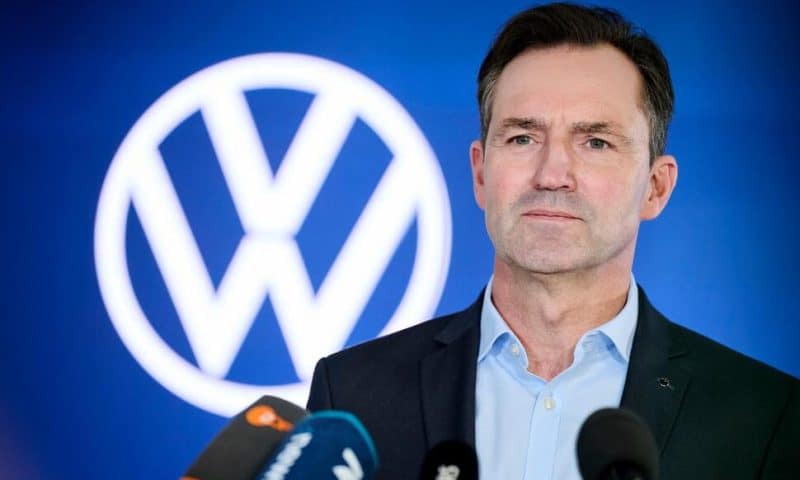Volkswagen’s employee representatives say they have reached a wage deal
FRANKFURT, Germany — Volkswagen and its employee representatives said Friday they have reached a wage deal for 120,000 German workers that avoids plant closings and bars involuntary layoffs through 2030. The agreement includes provisions for VW to shed more than 35,000 jobs through early retirement and buyouts by 2030.
The deal, reached in drawn-out bargaining sessions that stretched late into the night, is aimed at enabling the Wolfsburg-based carmaker to cope with a drop in demand in Europe, higher raw-material costs and increasing competition from Chinese automakers.
Lagging sales in Europe mean the company has lost potential sales of 500,000 cars a year, or the output of two factories.
The deal would save VW 1.5 billion euros ($1.56 billion) a year in labor costs and 4 billion euros a year by slashing manufacturing capacity by more 700,000 vehicles across its German plants through different production arrangements.
That the agreement avoids wholesale plant closings underscores the role played at Volkswagen by employee representatives and the state of Lower Saxony, who together have majority on the board of directors. That gives workers and the local government unusual leverage.
A top Volkswagen executive called it “a good agreement.”
“We had three priorities in the negotiations: reducing overcapacity in German locations, reducing labor costs and bringing development costs down to a competitive level,” said Thomas Schaefer, head of the company’s namesake Volkswagen brand.
“We reached sustainable solutions in all three areas.”
Thorsten Groeger, negotiator for the IG Metall union, said employees also accepted “painful concessions.” A union statement said that the loss of bonus payments and other compensation were part of the deal but that monthly wage levels would not be touched. The company had pressed for a 10% wage cut.
Read: UnitedHealthcare CEO Kept a Low Public Profile. Then He Was Shot to Death in New York
Volkswagen argues that it must lower costs in Germany to levels achieved by competitors and by Volkswagen plants in eastern Europe and South America.
Though major plant closings were avoided, a factory in Dresden will cease production at the end of next year as previous planned, and a plant in Osnabrueck is to produce T-Roc SUVs only through the middle of 2027. After those dates, the company will seek other uses for Osnabrueck. Top Volkswagen employee representative Daniela Cavallo said the Dresden plant could be repurposed “also in cooperation with other organizations” that she didn’t specify.
The company said it would move production of its Golf model from its home plant at Wolfsburg to Puebla, Mexico, and reduce the assembly lines at Wolfsburg from four to two that would produce the ID.3 and CUPRA Born compact cars. Some 4,000 vehicle development jobs would be dropped at Wolfsburg.

